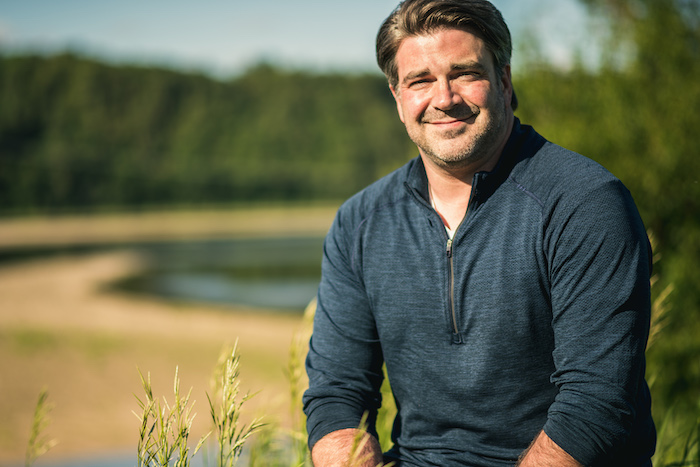
Conversation: A new Indigenous engineering firm is set to SOAR
October 1, 2021
By CCE
Dillon Consulting recently launched SOAR Professional Services, a planning, engineering, environmental science and management consulting firm dedicated to supporting First Nations, Inuit and Métis communities and organizations across Canada. Based in Kingsclear First Nation, N.B., the new business is owned, led and staffed by Indigenous professionals—including its president, Ryan Dunbar (pictured), who first joined Dillon in 2005.
What first got you interested in becoming a professional engineer?
My father suggested it would be a good career. I received scholarships from various programs, including the organization now known as Indspire. (The broad belief Indigenous students receive ‘free education’ is a misunderstanding; the reality is Indigenous education programs are generally underfunded and do not support all students in need.) The scholarships helped me to excel. I decided to complete a graduate degree with a focus in hydrogeology, with the intent of helping Indigenous communities acquire access to clean drinking water.
During your career with Dillon, how were you able to shift greater focus onto Indigenous clients?
About 10 years ago, I completed training in client relationship management (CRM), which included a marketing budget to pursue high-priority clients we were not extensively supporting. The list didn’t include any Indigenous clients. I proposed to use my training and budget to work with my own community, Kingsclear First Nation, on a water treatment system feasibility study. We developed an implementation strategy for the entire community’s water, waste and distribution systems. Since then, we have supported the community in securing funding for and completing every project on that list. Using a similar model and knowledge gained from these projects, we have expanded delivery of Indigenous services work substantially across Canada.
When and how did the concept for SOAR arise?
Canada was slowly advancing efforts to address substantial funding gaps for Indigenous community infrastructure. At the same time, Dillon was advancing a strategy to substantially grow its staff resources. Then-president (now CEO) Sean Hanlon provided the opportunity for me to present the SOAR concept to our board of directors, who provided the resources to create the new firm.
The board officially gave approval to operationalize SOAR a few weeks before pandemic restrictions came into effect in March 2020. Dillon provided capital investment and resources—i.e. for accounting, legal, human resources (HR), web development and marketing—as well as investments in my leadership potential. Each of these resources was critical to a complex limited partnership model that met the objectives outlined by our board. I am still learning every day, as well as identifying challenges I had never anticipated, but the experience has been truly rewarding.
Tell us about Two-Eyed Seeing.
Two-Eyed Seeing is a concept developed in 2004 by Mi’kmaw Elder Albert Marshall. He described it as “learning to see from one eye with the strengths of Indigenous knowledge and ways of knowing and from the other eye with the strengths of mainstream knowledge and Western ways of knowing and learning to use both together to produce more fulsome and sustainable solutions for the benefit of all.”
By way of example, our team was completing a climate change project for a First Nation using the Public Infrastructure Engineering Vulnerability Committee (PIEVC) protocol, which isn’t perfectly suited to Indigenous community infrastructure. We modified the approach to look at community service impact resulting from engineered failures, with extensive engagement with Elders, Youth, Leadership, Directors, Land Knowledge Holders, etc. We integrated climate change impacts they had observed. The outcomes of this study led to significant community adaptations that would in all likelihood have fallen through the cracks had we not modified standard engineering guidance to more closely align with Indigenous ways of knowing.
What will be key in ensuring SOAR’s longevity in the industry?
It’s easy to get excited about the work. The results are real, impactful and happening at a much more rapid pace than has been seen across Canada historically. We have supported economic development projects that have changed communities, from the way people are employed to investments in historically underfunded social systems to opportunities to reconnect culturally. I am not sure it would be possible to find more rewarding ways to build a career!
Our continued success and longevity will be driven by our ability to recruit like-minded individuals who are passionate about supporting others. Our established relationship with Dillon can help provide capacity as we grow and will give us the ability to expand our knowledge and understanding. Our goal is to support similar progress to a growing network of communities that could benefit from our approach to their future projects.
